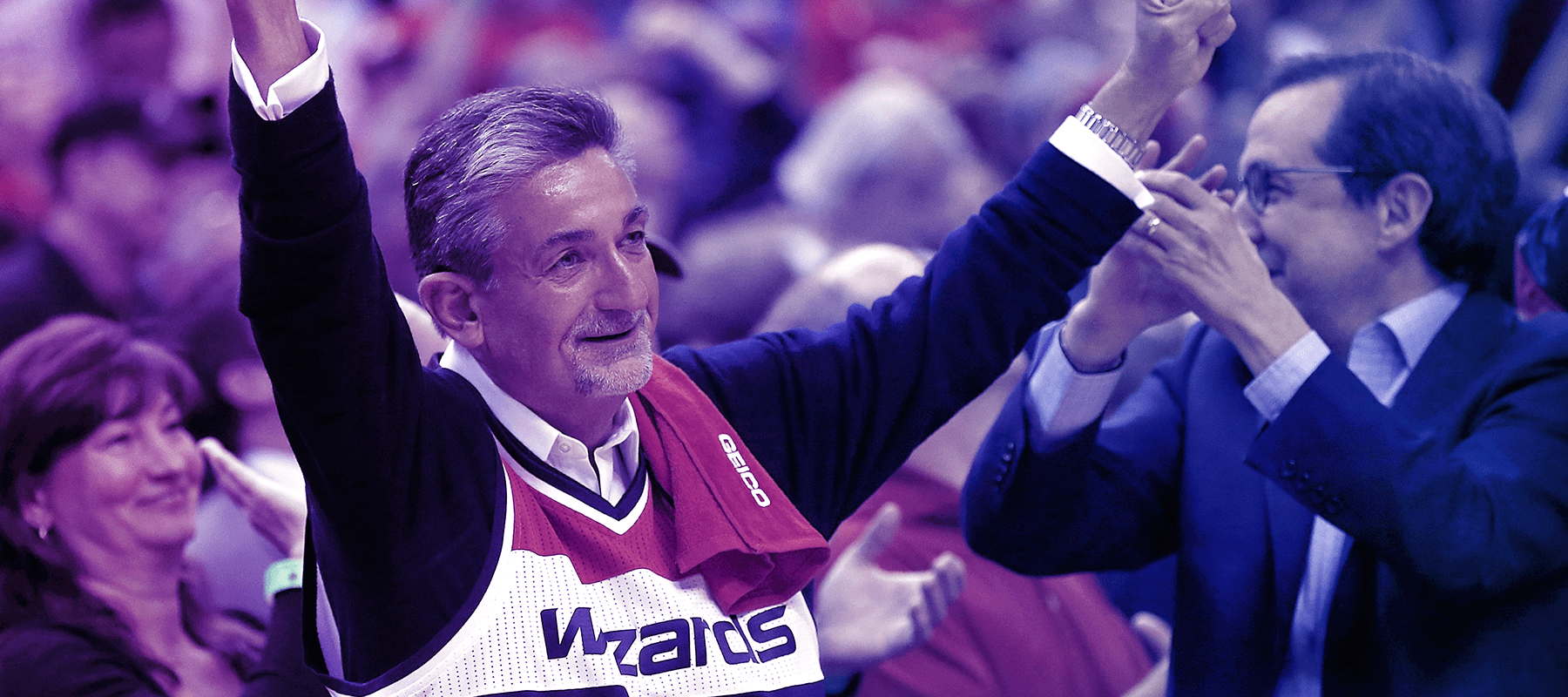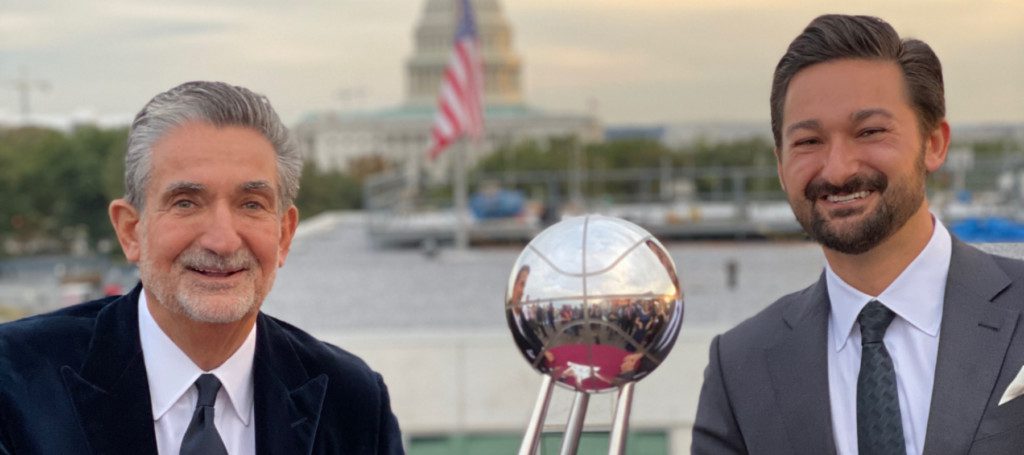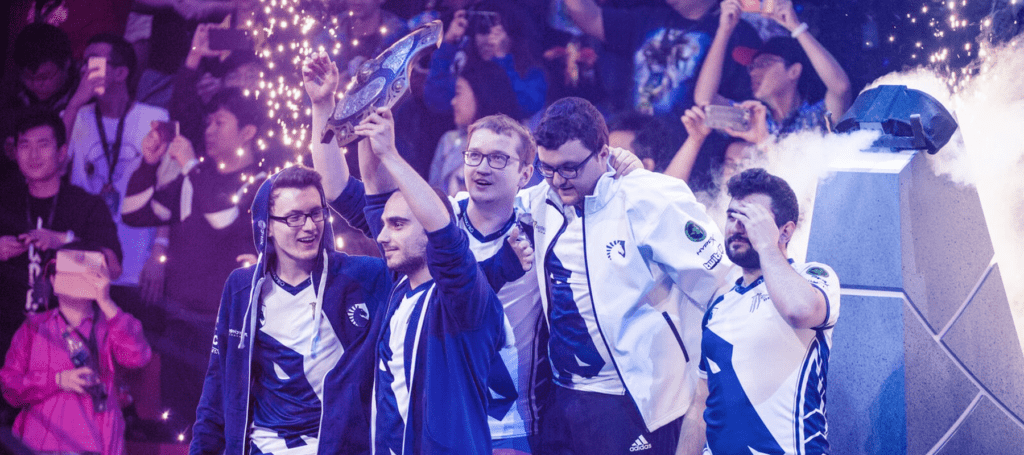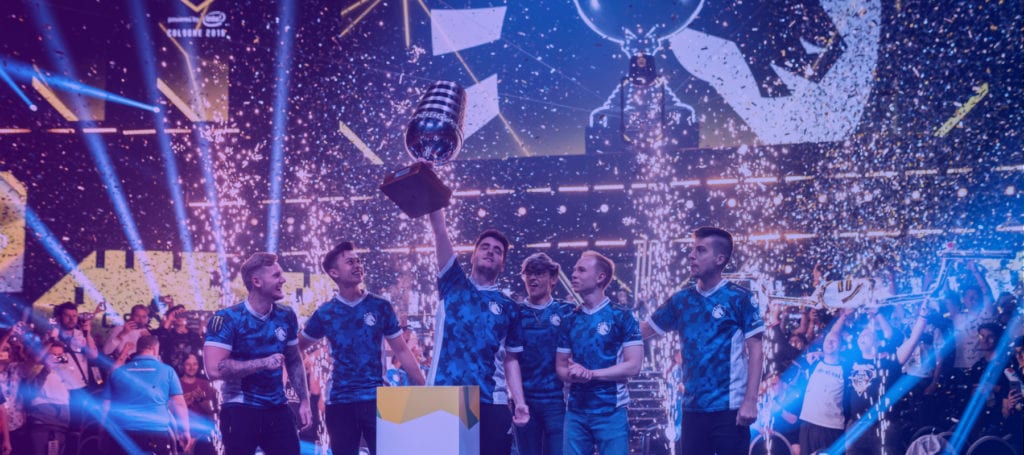Via Axiomatic Gaming | News
Ted Leonsis on Team Liquid Purchase and the Future of Esports
November 7, 2016 | Author: Axiomatic Gaming Director of Business Strategy
“I do believe this will be as mainstream as Hollywood and the NBA.”
In September, an investment group led by Washington Wizards, Capitals and Mystics owner (and former AOL exec) Ted Leonsis and Golden State Warriors co-owner (and Mandalay Entertainment CEO) Peter Guber purchased a controlling interest in Team Liquid, one of the premier esports organizations in North America.
The move followed a similar one announced just one day earlier by the Philadelphia 76ers, who purchased Team Dignitas and Apex Gaming. Traditional sports investors have been flooding the esports industry with new money, especially in North America and Europe, but the purchase of Team Liquid may be the biggest yet.
We spoke with Ted Leonsis last month about the purchase of the team, the future of the industry and the role of Team Liquid’s current ownership structure.
This interview has been edited for length and clarity.
Pete Volk: What encouraged you to get into the esports space in the first place?
Ted Leonsis: Well I probably had a deeper awareness and understanding of what was happening in the industry and the category than most because I grew up at an online service, as I’ve noted, you know, AOL was originally founded to power Atari Gaming [laughs]. It was called Quantum Computer Corporation.
So I grew up with AOL and knew gamers online and how much time was being spent, and then watched the video game and online industry start to merge. The multi-user gaming phenomenon is incredible, and a natural outgrowth of that community was very accomplished players, and then from those communities grew these organic teams, and Team Liquid was one of the first. What I love most about it is that the owners of the team were players, they just love the business, they love the industry, and the usage and engagement of that community is so high that now it’s become potential to be a media-oriented business kind of like the NBA and NHL and the like, so just following it, watching my son play it all the time, made it kind of a natural for us.
PV: You talked about the growth and the obvious comparison to traditional sports leagues. As you’ve seen this scene grow, where do you see it ending up? Where could it get to?
TL: I think the first thing we’ll see is the overall platform providers and the IP, the Riot Games, the Bethesda Softworks, Blizzard, all the suppliers that are platforming the games, those companies are going to be among the most important and the most valuable companies in the world. They’re able to attract the greatest talent. Like any industry, talent rules, and if you’re a young software developer, graphic designer or storyteller, you will migrate to those companies in that industry, and then as the bandwith becomes even more ubiquitous, you’ll see in North America, where we have to step our game up this year…
PV: [laughs]
TL: Well it’s true! North American players are not as respected because they feel a step behind. Almost like world-class football/soccer, we’re just a step behind. But I think what you’ll see is the next generation of young adults in North America can be as capable as gamers around the world, as this becomes more mainstream. When my son has kids, he won’t be afraid to let his kids play video games. So it’s a generational thing. You could say it’s mainstream today, but it’s still predominantly a young, male activity, and what the industry needs is it needs to be broadened to include women and minorities.
In North America, it needs to be more cultivated to be more mainstream. Right now the Koreans, the Chinese and the Russians, it’s bigger there than it is here and I do believe this will be as mainstream as Hollywood and the NBA one day.
PV: You bring up the gap between the US and Korea and China and some of these other regions, and it seems like one of the reasons for that is some of those countries had bigger investments a few years ago, but there’s also less of a stigma culturally on playing the game professionally. So do you hope that with people like yourself and others in the investment group entering the space that with bigger names and bigger money coming into it, people will think a little more favorably of it as a serious thing?
TL: I don’t want to take credit for that, but I do believe that many hands make light work. As more mainstream companies, you know, Turner has made an investment, ESPN has made an investment, you’re seeing team owners like Peter Guber and myself, and investors getting involved and that should help. The good news though is, because we own sports teams, I’m not down trying to coach the team or scouting players and the like in the NHL and the NBA.
What’s great about the esports teams, and about [Team Liquid co-owner] Steve [Arhancet], is that he was a player. He cares about the players. He cares about the artform. He cares about the competitiveness and the community, and I think that really, really works well, because there’s a complexity to that where if I just came in and bought a team — I didn’t grow up playing, right? My son could own a team and relate well to the players, because it’s a generational thing. What I’m happy about is this is a kind of a verification for people like Steve and [Team Liquid co-owner] Victor [Goossens] who believe in this and have worked really hard and care about the players and care about the form, and they know they can get some reward for the work that they’ve done.
And now they’ll have resources to make sure the players are hydrated, the players are trained well, that they share in more of the revenue as we start to generate more revenue, that we can make sure that there’s integrity in the game, that we make sure we set the situation the right way out of the gate. So we’ll try to help and we feel like we have a lot of experience. We can bring resources and shine a light on things. We can work where there’s negatives in business and help grow the sport around the world.
PV: I found it interesting when the announcement was made, because previously when investors have entered this space they’ve been starting a new organization, like Echo Fox and Immortals. I’ve been waiting for a while for a big investor to come and in try and go with one of the already established names. Was it ever a consideration to go a different rout, or did you always know this was the direction to go in?
TL: I don’t want to speak for everyone, but I’ll say most team owners, most new media investors, entrepreneurs, are looking at this space purely driven by the astounding numbers around the engagement of usage. So if you just look at the top level, you say ‘something big is going on here.’ But like any business, any industry, there are subject matter experts that have a genuineness and an innate understanding of the community, the technology, the people in the sport.
My belief, and Peter Guber’s belief, we came at this separately and we both ended up at the same place, that’s why we ended up splitting the team if you will [laughs], was that people like Steve, people like Victor, were real. They were respected, they were a part of this organic growth, and it was better for us to reward them, invest in them, leave them alone around the game and the competitiveness itself. I’m never going to tell them who to hire as a coach, what players to recruit, what the training regiment should be, I just wouldn’t do that.
But we can talk about what kind of media deal, what kind of streaming platform technology and how do we make sure that there’s integrity around the data science, how do we make sure the players are compensated fairly, how do we make sure the sponsors understand the pros and cons of the business and where they can be welcomed by the community and what would be considered interruptive or bad marketing, so we only want to bring our touch, our capability, to help grow the game. We don’t want to mess with the genuineness, the competitiveness and try to be something that we’re not. I think that’s what connected with Steve and Victor.
PV: As far as a lot of the money that’s been coming in recently, a very large percentage has been coming specifically from the NBA. You’ve got owners from the Grizzlies, the Kings, Peter Guber, yourself, Magic Johnson, Rick Fox, Jonas Jerebko … what is it about basketball that is having people sent this way?
TL: Well, I think it’s a few things. One, the NBA early on established itself around technology, they created this tech day around the all-star game around 15 years ago, and our players are very, very technically savvy, the most Twitter followers, they’re just very active and then many of our buildings appeal to some of the big agencies who want to bring tournaments and teams to big cities, they reach out to us. These are big cities that have lots of young people but also have the cable and the fiber that’s laid into the building. We could host an esports tournament in our building, and it would be high-quality play. Not all buildings can do that, not all cities can accommodate that.
I also think maybe 18 months ago, I was chair of the NBA Media Committee, and we were talking to Turner, and Turner was getting into esports, we obviously did the deal with Turner and ESPN, and ESPN was obviously looking into it, so I think we got kind of a headstart, but obviously the NHL’s looking and NHL owners are looking as well as the NFL.
PV: How much of the decision to buy Team Liquid came from the fact that you and Team Liquid share the same initials?
TL: [laughs]
Someone mentioned that to me the other day, I didn’t even think about but I’d like to say that shows some destiny.




